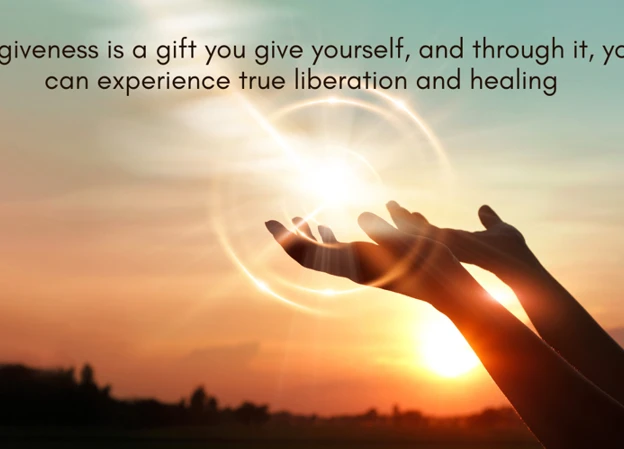Forgiveness is a powerful tool that has the potential to bring about deep emotional healing. It is a concept that is often misunderstood, but its psychological benefits are undeniable. By releasing negative emotions, reducing stress and anxiety, and cultivating emotional well-being, forgiveness can play a pivotal role in our overall mental health. Forgiveness has the ability to heal past wounds, restore broken relationships, and foster self-forgiveness and self-acceptance. In this article, we will explore the concept of forgiveness, delve into its psychological benefits, discuss its healing power, outline the steps towards forgiveness, and offer various forgiveness techniques and exercises. By understanding the role of forgiveness in emotional healing, we can embark on a journey of personal growth and find inner peace.
Contents
- The Concept of Forgiveness
- The Psychological Benefits of Forgiveness
- The Healing Power of Forgiveness
- Steps towards Forgiveness
- Forgiveness Techniques and Exercises
- The Role of Forgiveness in Emotional Healing
- Conclusion
-
Frequently Asked Questions
- 1. What is the difference between forgiveness and reconciliation?
- 2. Is forgiveness a sign of weakness?
- 3. Can forgiveness be selfless?
- 4. Can forgiveness be achieved instantly?
- 5. Can forgiveness be selective?
- 6. Does forgiveness require an apology?
- 7. What are the consequences of holding onto grudges?
- 8. Does forgiving someone mean we have to forget?
- 9. Can forgiveness be a continuous process?
- 10. Can forgiving someone lead to reconciliation?
- References
The Concept of Forgiveness
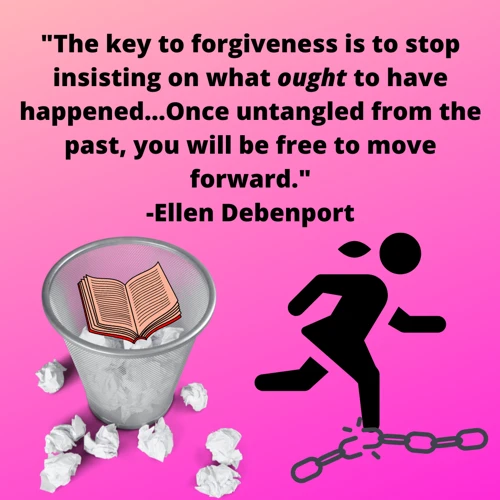
The Concept of Forgiveness
Forgiveness is a complex and multifaceted concept that involves letting go of resentment, anger, and the desire for revenge towards someone who has wronged us. It is not about condoning or excusing the actions of others, but rather about finding inner peace and moving forward with our own lives. Forgiveness involves a deep understanding that holding onto negative emotions only harms ourselves, both emotionally and physically. It requires acknowledging the pain caused by the wrongdoing, and consciously choosing to release it. Forgiveness is a personal journey that varies from person to person, and it may not always come easily. It requires introspection, empathy, and self-reflection to fully embrace the concept of forgiveness. By forgiving others, we free ourselves from the burden of negative emotions, allowing for emotional healing and the possibility of rebuilding relationships. Additionally, forgiveness extends beyond others to include self-forgiveness and self-acceptance. It is a powerful act that opens the door to personal growth, healing emotional wounds, and finding peace within ourselves. To understand the concept of forgiveness and its role in emotional healing, it is important to explore spiritual and psychic guidance, as well as the connection between forgiveness and spirituality.
/healing-inner-child-psychic-guidance/
The Psychological Benefits of Forgiveness

Forgiveness is not only a transformative process but also has numerous psychological benefits. Firstly, forgiveness allows for the release of negative emotions, which can be incredibly liberating for the individual. Holding onto anger, resentment, and grudges can weigh heavily on one’s mental well-being and cause emotional distress. By forgiving, individuals are able to let go of these negative emotions, paving the way for emotional healing. Secondly, forgiveness helps reduce stress and anxiety. When we hold onto feelings of anger and resentment, our bodies respond with heightened stress levels, increased heart rate, and tension. By choosing forgiveness, we can alleviate these physical and psychological symptoms, leading to a sense of calmness and well-being. Lastly, forgiveness enhances emotional well-being by promoting empathy and compassion. By forgiving others, we cultivate a greater capacity for understanding and empathy, which contributes to healthier and more meaningful relationships. Understanding the psychological benefits of forgiveness is crucial in the journey of healing and personal growth. To gain a deeper understanding of the connection between forgiveness and spirituality, one can explore the realm of /understanding-spirituality-emotional-healing/.
1. Release of Negative Emotions
1. Release of Negative Emotions
One of the key psychological benefits of forgiveness is the release of negative emotions that we hold onto when we have been wronged. Holding onto anger, resentment, and bitterness can have detrimental effects on our emotional well-being. Forgiveness allows us to let go of these negative emotions and free ourselves from their burden. When we forgive, we are not condoning the hurtful actions of others; instead, we are choosing to release the negative energy associated with the wrongdoing. This release can bring a sense of relief and liberation as we no longer carry the weight of anger and resentment. It allows us to move forward with a lighter heart and a sense of inner peace. By exploring emotional healing through techniques such as /explore-emotional-healing-psychic-readings/, we can further enhance the release of negative emotions and experience a greater sense of emotional well-being.
2. Reduction of Stress and Anxiety
2. Reduction of Stress and Anxiety
One of the remarkable psychological benefits of forgiveness is its ability to reduce stress and anxiety. When we hold onto feelings of resentment and anger towards someone who has wronged us, our bodies and minds remain in a constant state of tension. This chronic stress can lead to a range of negative health effects, including elevated blood pressure, weakened immune system, and increased risk of mental health disorders. However, through the act of forgiveness, we release the toxic emotions that have been weighing us down. By letting go of grudges and choosing forgiveness, we allow ourselves to experience a sense of relief and liberation. This release of negative emotions eases the burden on our minds and bodies, allowing for a significant reduction in stress and anxiety levels. As we embrace forgiveness, we create space for positive emotions such as compassion and empathy to enter our lives. These positive emotions serve as powerful antidotes to stress and anxiety, promoting emotional well-being and contributing to overall mental health. By practicing forgiveness, we can experience a profound sense of calm and inner peace, enabling us to navigate life’s challenges with greater resilience and emotional balance. The reduction of stress and anxiety that comes with forgiveness is truly transformative, both for our mental health and our overall well-being.
3. Enhanced Emotional Well-being
3. Enhanced Emotional Well-being
One of the significant benefits of forgiveness is the enhancement of emotional well-being. When we hold onto grudges, resentment, or anger, it negatively impacts our emotional state. However, by practicing forgiveness, we can experience a release of these negative emotions and cultivate a greater sense of inner peace and happiness. Forgiveness allows us to let go of the past, freeing ourselves from the emotional weight that comes with holding onto grievances. It provides an opportunity for healing emotional wounds and finding closure, which contributes to overall emotional well-being. Choosing forgiveness can lead to a reduction in anxiety, depression, and other negative emotions, enabling us to experience more positive emotions such as joy, gratitude, and compassion. It also improves our ability to handle conflicts and challenges in healthier ways. By actively cultivating forgiveness as a daily practice, we can create a positive emotional landscape within ourselves and enjoy a higher quality of life.
The Healing Power of Forgiveness
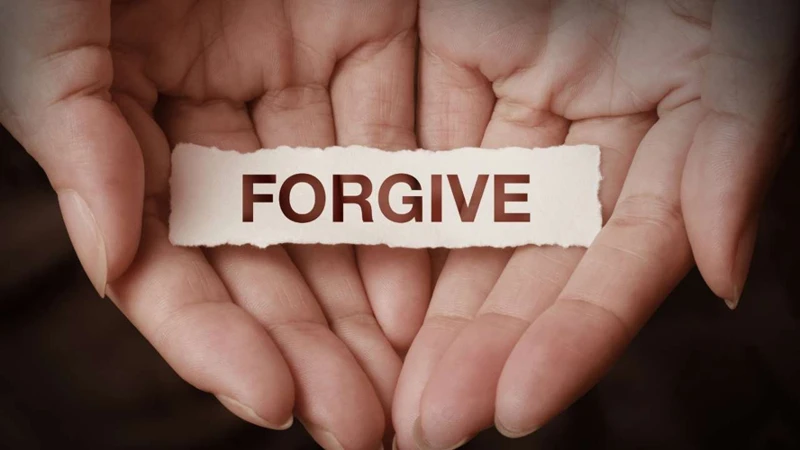
The healing power of forgiveness is profound and transformative. When we choose to forgive, we open ourselves up to a process of healing past wounds and finding inner peace. Forgiveness allows us to let go of the pain and resentment that we have been carrying, freeing ourselves from the emotional burden. It offers us an opportunity to restore broken relationships and rebuild trust. By forgiving others, we not only release them from their wrongdoings, but we also release ourselves from the negative emotions that have held us back. Forgiveness is not limited to others; it extends to ourselves as well. Self-forgiveness and self-acceptance are crucial components of the healing process. By forgiving ourselves, we can let go of guilt, shame, and self-blame, and embrace a newfound sense of self-worth and compassion. The act of forgiveness is not always easy, but it is a powerful and necessary step towards emotional healing and growth. Through forgiveness, we can experience freedom, inner healing, and a renewed sense of well-being.
1. Healing Past Wounds
1. Healing Past Wounds
Healing past wounds is a crucial aspect of forgiveness. When we hold onto past hurts and grievances, it hinders our emotional well-being and hampers our ability to move forward. By practicing forgiveness, we can address these wounds and begin the healing process. Recognizing and acknowledging the pain inflicted upon us is the first step towards healing. It requires a willingness to confront and accept the emotions that arise from past experiences. Self-reflection and introspection play a vital role in this process, allowing us to gain insight into the impact these wounds have had on our lives. It may be helpful to seek /psychic-guidance to gain a deeper understanding of the root causes and underlying emotions associated with these past wounds. Forgiveness does not mean forgetting or dismissing the pain; rather, it involves making a conscious choice to release the negative emotions attached to these experiences. This release allows for healing and the opportunity to reclaim personal power and emotional freedom. By letting go of the past, we create space for inner peace, growth, and the possibility of building healthier relationships.
2. Restoring Relationships
Restoring relationships is one of the profound benefits of forgiveness. When we hold onto anger, resentment, or grudges, it can create a barrier in our relationships and hinder their growth. However, forgiveness has the power to break down those barriers and pave the way for healing and reconciliation. When we choose to forgive someone who has hurt us, we open the door to rebuilding the trust and connection that may have been damaged. It allows for honest communication, understanding, and empathy to take place. This doesn’t mean that we forget the past or condone the actions that caused the pain, but rather, we choose to let go of the negative emotions that were holding us back. When both parties are committed to forgiveness, it creates an opportunity to restore the relationship and create a healthier and more loving dynamic. It requires vulnerability, empathy, and a willingness to work through the issues that led to the breakdown in the first place. By restoring relationships through forgiveness, we create the potential for deeper connections, growth, and a sense of harmony in our lives.
3. Self-Forgiveness and Self-Acceptance
Self-forgiveness and self-acceptance are essential components of personal growth and emotional healing. This step in the forgiveness process involves directing forgiveness towards ourselves for past mistakes, regrets, and shortcomings. It is about embracing our imperfections and accepting ourselves unconditionally. Self-forgiveness requires acknowledging our own humanity and recognizing that we are not immune to making errors or experiencing pain. It involves letting go of self-blame, shame, and guilt that can weigh us down emotionally.
To practice self-forgiveness, it can be helpful to engage in self-reflection and self-compassion. Reflecting on the reasons behind our actions and understanding the context in which they occurred allows us to gain insight and empathy towards ourselves. We can recognize that we did the best we could with the knowledge and resources we had at that time.
A helpful technique for self-forgiveness is to write a forgiveness letter to oneself. In this letter, we can acknowledge our mistakes, express forgiveness towards ourselves, and commit to growth and self-improvement. This act of writing allows us to externalize our thoughts and emotions, offering clarity and a sense of release.
Self-acceptance is closely intertwined with self-forgiveness. It involves embracing all aspects of ourselves—the strengths and weaknesses, the successes and failures, the light and dark. It means letting go of the need for perfection and striving to be our authentic selves. Self-acceptance enables us to love ourselves unconditionally and to cultivate a positive self-image.
Practicing self-forgiveness and self-acceptance can be challenging, as it requires patience and self-compassion. However, by forgiving ourselves and accepting who we are, we liberate ourselves from self-imposed limitations and negative self-talk. We pave the way for emotional healing and personal growth, fostering a sense of inner peace and well-being.
Steps towards Forgiveness
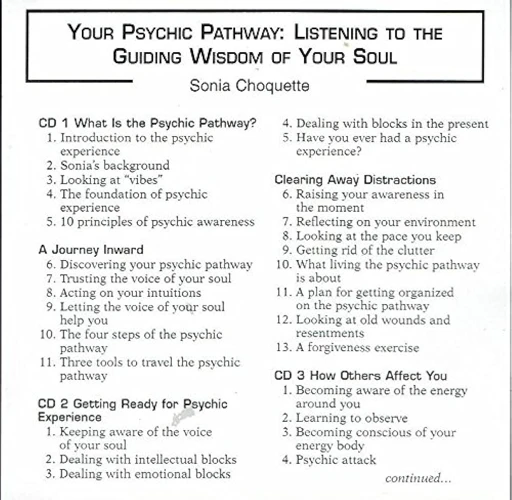
To embark on the journey of forgiveness, there are several steps that can be taken. The first step is to acknowledge and accept the pain that has been caused. By recognizing the emotions and allowing ourselves to feel them, we can begin the process of healing. The next step involves understanding the intentions behind the action that caused harm. This doesn’t mean justifying or excusing the behavior, but rather trying to gain insight into the circumstances or mindset of the person involved. Practicing empathy and compassion is another crucial step towards forgiveness. This involves putting ourselves in the other person’s shoes and trying to understand their perspective. It doesn’t mean condoning their actions, but it allows us to see them as fellow flawed human beings. Letting go of resentment is the next important step. This requires consciously releasing negative emotions and choosing to forgive. Finally, moving forward with forgiveness involves making a commitment to let go of the past and focus on personal growth and healing. By following these steps, we can gradually work towards forgiveness and experience the transformative power it holds.
1. Acknowledging and Accepting the Pain
The first step towards forgiveness is acknowledging and accepting the pain caused by the wrongdoing. It requires a willingness to confront the emotions and memories associated with the hurtful event. It’s important to allow ourselves to fully experience the pain, anger, and sadness that arise. By acknowledging our emotions, we validate our own feelings and begin to release the pent-up negativity. This step involves delving into the depths of our emotions and understanding the impact of the wrongdoing on our lives. It may be helpful to journal about our feelings, talk to a trusted friend or therapist, or seek /healing-inner-child-psychic-guidance/ to gain a fresh perspective. Accepting the pain involves recognizing that what happened cannot be changed, but how we choose to respond and heal is within our control. It can be a challenging process, but by acknowledging and accepting the pain, we lay the groundwork for moving towards forgiveness and emotional healing.
2. Understanding the Intentions
2. Understanding the Intentions
In the process of forgiveness, it is essential to explore and understand the intentions of the person who has caused us harm. This step requires shifting our perspective and seeking empathy to gain insight into their motivations and circumstances. It is important to recognize that everyone has their own set of experiences, beliefs, and emotions that shape their actions. By attempting to understand their intentions, we can begin to see them as flawed human beings rather than solely as the source of our pain. This understanding does not excuse or justify their actions, but it allows us to develop a more compassionate outlook. Sometimes, we may discover that the person who has hurt us did so unintentionally, or due to their own unresolved emotional issues. Other times, their actions may have been driven by their personal struggles or a lack of awareness. Compassionately understanding their intentions can lead to a deeper level of forgiveness and facilitate the healing process. It is important to mention that this step involves introspection and self-reflection, as well as acknowledging our own role in the situation. By recognizing that we are all imperfect and capable of causing harm, we can foster forgiveness not only for others but also for ourselves.
3. Practicing Empathy and Compassion
Practicing empathy and compassion is a vital step towards forgiveness. It involves putting ourselves in the shoes of the person who hurt us and trying to understand their perspective and motivations. This does not mean condoning their actions, but rather seeking to gain insight into their circumstances, experiences, and emotions. By cultivating empathy, we can develop a deeper understanding of the complexities of human nature and the underlying reasons behind someone’s hurtful behavior. Compassion, on the other hand, involves showing kindness, forgiveness, and understanding towards ourselves and others. It is about recognizing our shared humanity and acknowledging that everyone makes mistakes. By extending compassion to ourselves, we can begin to heal our own wounds and cultivate a sense of self-love and acceptance. When we extend compassion to others, we create an atmosphere of understanding and openness, fostering the conditions for forgiveness to thrive. Practicing empathy and compassion can be done through various techniques, such as engaging in active listening, seeking therapy or counseling, participating in support groups, or even seeking psychic guidance to gain a deeper understanding of the situation and the people involved. It is through these acts of empathy and compassion that we can begin to soften our hearts and move closer to the path of forgiveness.
4. Letting Go of Resentment
Letting go of resentment is a crucial step towards forgiveness and emotional healing. Resentment is a toxic emotion that can consume our thoughts and energy, keeping us stuck in negativity. To let go of resentment, we must first acknowledge and accept the pain that we have experienced. This requires facing the emotions head-on and allowing ourselves to feel them fully. By doing so, we can begin to understand the impact that holding onto resentment has on our well-being. It is important to recognize that holding onto resentment only prolongs our suffering and prevents us from moving forward. One effective technique for letting go of resentment is practicing forgiveness affirmations. These affirmations can help reframe our mindset and shift our focus towards forgiveness. Additionally, practicing self-compassion and self-care is vital in the process of releasing resentment. This involves treating ourselves with kindness, understanding, and forgiveness. Engaging in activities that bring us joy and practicing mindfulness can also aid in letting go of resentment. It is important to remember that letting go of resentment is a journey and may take time. However, by actively working towards forgiveness and consciously choosing to release resentment, we open ourselves up to emotional healing and inner peace.
5. Moving Forward with Forgiveness
5. Moving Forward with Forgiveness
Moving forward with forgiveness is a crucial step in the journey towards emotional healing. It involves actively embracing forgiveness and integrating it into our lives. Here are some key steps to help us move forward with forgiveness:
1. Releasing Expectations: It is important to let go of any expectations we may have regarding the outcome of our forgiveness. We cannot control how the other person will respond or whether they will offer an apology. Instead, focus on forgiving for your own well-being.
2. Setting Boundaries: While forgiveness is important, it doesn’t mean we have to continue or rebuild a relationship with the person who hurt us. It’s essential to establish healthy boundaries to protect ourselves from further harm.
3. Practicing Self-Care: Emotional healing requires self-care and self-compassion. Engage in activities that bring you joy and nourish your soul. Take the time to prioritize your well-being and practice self-love.
4. Seeking Support: Forgiveness can be challenging, and having a support system can make a significant difference. Reach out to trusted friends, family, or even seek professional help if needed. Surrounding yourself with understanding and empathetic individuals can provide guidance and encouragement.
5. Embracing Growth: Moving forward with forgiveness involves embracing personal growth and learning from the experience. Use forgiveness as an opportunity for self-reflection and introspection, and focus on personal development and evolving into the best version of yourself.
By following these steps, we can truly move forward with forgiveness and experience the transformative power it holds. It allows us to break free from the shackles of resentment and create a path towards emotional healing and inner peace.
Forgiveness Techniques and Exercises
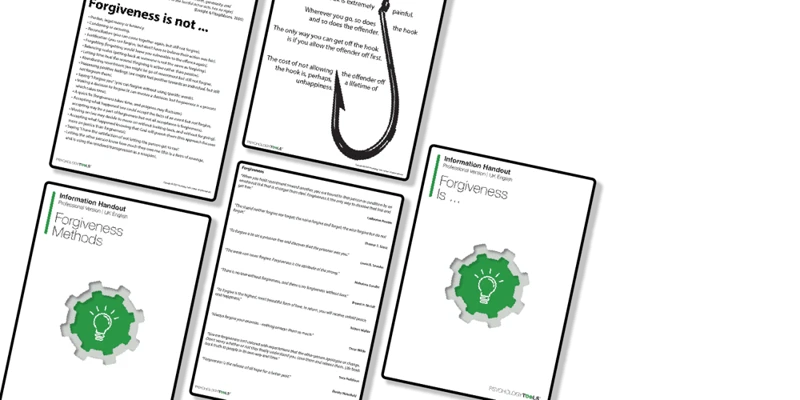
Forgiveness techniques and exercises provide practical tools for individuals seeking to cultivate forgiveness in their lives. One effective technique is writing a forgiveness letter, where one expresses their feelings towards the person who has wronged them and forgives them for their actions. This exercise can be cathartic and allows for the release of pent-up emotions. Another powerful technique is engaging in guided forgiveness meditation, where individuals focus on letting go of resentment and cultivating compassion towards themselves and others. This practice helps shift the mindset towards forgiveness and allows for healing to take place. Self-reflection and journaling are additional exercises that promote forgiveness. By introspecting on past experiences and examining one’s own emotions, individuals can gain insight into the root causes of their pain and begin the process of forgiveness. These techniques and exercises serve as valuable tools to support individuals on their journey towards forgiveness, allowing for emotional healing and personal growth.
1. Writing a Forgiveness Letter
1. Writing a Forgiveness Letter
Writing a forgiveness letter is a powerful and cathartic exercise that allows individuals to express their emotions, thoughts, and intentions towards the person they wish to forgive. This technique provides a structured platform for individuals to communicate their feelings and seek closure. When writing a forgiveness letter, it is essential to be genuine and sincere. Begin by addressing the person directly and explaining the specific incident or situation that caused hurt or harm. Express your emotions honestly, highlighting the pain caused by their actions. It is crucial to avoid blaming or attacking the individual, as this can hinder the forgiveness process. Instead, focus on your own emotions and the impact their actions had on you. Acknowledge their imperfections and flaws and try to understand their perspective, which can promote empathy and compassion. Clearly state your intention to forgive, emphasizing that you are choosing to release any resentment or negative feelings associated with the situation. Conclude the letter by expressing your desire for healing and restoration, whether it is within the relationship or for your own personal growth.
Throughout the process of writing a forgiveness letter, it is important to remain open-minded and willing to let go of any remaining anger or resentment. Remember that forgiveness is a personal journey and may not necessarily lead to reconciliation with the other person. The act of writing the forgiveness letter itself is therapeutic and can provide a sense of closure and emotional release. Consider keeping the letter to yourself or, if appropriate, send it to the person you are forgiving. However, it is crucial to manage your expectations and not to expect a specific response or outcome. The purpose of writing a forgiveness letter is to free yourself from the emotional burden and promote personal healing and growth.
2. Guided Forgiveness Meditation
2. Guided Forgiveness Meditation
Guided forgiveness meditation is a powerful technique that can assist individuals in the process of forgiving themselves and others. This practice involves finding a quiet and comfortable space where you can relax and focus your mind. Begin by taking deep breaths and allowing any tension or stress to melt away. Visualize the person or situation that you need to forgive. As you breathe in, imagine drawing in compassion and love, and as you exhale, release any negative feelings or resentment. You can repeat affirmations such as “I forgive you” or “I release this pain” to reinforce the intention of forgiveness.
During the guided meditation, you may be guided to visualize a healing light surrounding the person you need to forgive, or imagine yourself extending forgiveness to them with an open heart. The purpose of this practice is to cultivate empathy, compassion, and understanding towards the person who caused the pain. By connecting to your own capacity for forgiveness and extending it towards others, you can experience a sense of liberation and emotional release.
There are various guided forgiveness meditation resources available, including online recordings, apps, and guided meditation classes. Choose a meditation that resonates with you and commit to practicing it regularly. Over time, you may notice a shift in your perspective, increased inner peace, and a deepening sense of forgiveness towards yourself and others.
Guided forgiveness meditation can be a transformative tool in the journey of emotional healing. It allows you to tap into your inner wisdom and access a state of forgiveness that brings about profound healing and liberation. With dedication and regular practice, guided forgiveness meditation can help you release past hurts and embrace a future filled with compassion, understanding, and forgiveness.
3. Self-Reflection and Journaling
Self-reflection and journaling are powerful practices that can aid in the process of forgiveness and emotional healing. Taking the time to reflect on our thoughts, feelings, and experiences can help us gain insights into our emotions and behaviors. By engaging in self-reflection, we can identify any underlying pain, resentment, or unresolved emotions that may be hindering our ability to forgive.
One way to practice self-reflection is through journaling. Keeping a journal allows us to explore our thoughts and emotions in a safe and private space. We can write about the experiences that have caused us pain or triggered negative emotions, as well as our reactions to those experiences. Journaling helps us to express our emotions and gain clarity about the situations that have hurt us.
In our journal, we can also explore our own role in the situation, acknowledging any mistakes or shortcomings. This process of self-reflection encourages self-awareness and accountability, which are essential in the forgiveness process.
When journaling, it is important to write without judgment or self-censorship. Allow your thoughts and emotions to flow freely onto the pages without worrying about grammar or perfection. The goal is to express your true feelings and gain a deeper understanding of yourself and the situation.
Regularly engaging in self-reflection and journaling can help us recognize patterns, triggers, and areas where forgiveness may be necessary. It allows us to release emotions, process our experiences, and ultimately work towards forgiveness and emotional healing.
Consider setting aside dedicated time each day or week for self-reflection and journaling. Find a quiet and comfortable space where you can focus on your thoughts and feelings. You may also find it helpful to incorporate other mindfulness practices, such as deep breathing or meditation, to enhance the self-reflection process.
Self-reflection and journaling can be transformative practices that empower us to take control of our emotions and navigate the path towards forgiveness and emotional healing. Through honest self-exploration, we can gain greater understanding and compassion for ourselves and others, paving the way for forgiveness to unfold.
The Role of Forgiveness in Emotional Healing
The Role of Forgiveness in Emotional Healing
Forgiveness plays a crucial role in emotional healing, providing a pathway towards inner peace and personal growth. It allows individuals to release the emotional burden of past hurts and traumas, creating space for healing and transformation. When we hold onto grudges and resentment, it can manifest as emotional pain, anger, and even physical ailments. Forgiveness provides a means to address these negative emotions and break free from their grip. By forgiving others, we are not only letting go of the pain they caused us, but also freeing ourselves from the shackles of bitterness and resentment.
Emotional healing through forgiveness also involves restoring relationships that have been strained or broken. By choosing forgiveness, we open the possibility of rebuilding trust, understanding, and empathy in these relationships. However, forgiveness does not guarantee reconciliation or require us to forget the past. It is a personal choice that allows us to move forward with compassion and clarity, regardless of whether the relationship is restored or not.
Forgiveness extends beyond forgiving others to include self-forgiveness and self-acceptance. We often carry guilt, shame, and self-blame for past mistakes or actions. Forgiving ourselves is a vital part of emotional healing, as it allows us to let go of self-destructive patterns and embrace self-love and self-compassion. By forgiving ourselves, we give ourselves permission to grow, learn from our experiences, and create a brighter future.
In essence, forgiveness is a journey of self-discovery and empowerment. It requires vulnerability, empathy, and a willingness to let go of negative emotions. Through forgiveness, we are able to heal our emotional wounds, foster healthy relationships, and create a more fulfilling life. It is a powerful tool in emotional healing, offering the opportunity for personal growth, freedom, and happiness.
Conclusion
Conclusion
In conclusion, forgiveness is a transformative process that has the power to bring about emotional healing. By letting go of negative emotions and cultivating empathy and compassion, forgiveness allows us to release the pain and resentment that hold us back. It offers a pathway to healing past wounds, restoring broken relationships, and fostering self-forgiveness and self-acceptance. Through the steps towards forgiveness and the practice of forgiveness techniques and exercises, we can embark on a journey of personal growth and find inner peace. The concept of forgiveness is not always easy to understand or apply, but its psychological benefits and healing power are undeniable. By embracing forgiveness, we can free ourselves from the shackles of the past and create a brighter and more fulfilling future. It is an act of strength and courage, and it has the potential to change our lives for the better. Let forgiveness be our guide in the journey towards emotional healing.
Frequently Asked Questions
1. What is the difference between forgiveness and reconciliation?
Forgiveness and reconciliation are related but distinct concepts. Forgiveness is a personal process of letting go of negative emotions and resentment towards someone who has wronged us. Reconciliation, on the other hand, involves rebuilding trust and restoring the relationship. While forgiveness is a choice we make for ourselves, reconciliation requires the willingness and effort of both parties involved.
2. Is forgiveness a sign of weakness?
No, forgiveness is not a sign of weakness. In fact, it requires immense strength and courage to forgive someone who has hurt us. It is an act of self-empowerment and a way to take control of our emotions and move forward with our lives.
3. Can forgiveness be selfless?
Forgiveness can be both selfless and selfish. While forgiving someone benefits our own emotional well-being by releasing negative emotions, it can also be an act of compassion and understanding towards the person who wronged us. It allows them the opportunity to learn and grow from their actions.
4. Can forgiveness be achieved instantly?
Forgiveness is a process that takes time and effort. It is not always achievable instantly, especially in cases of deep emotional pain. It requires introspection, self-reflection, and a willingness to let go of negative emotions gradually.
5. Can forgiveness be selective?
Yes, forgiveness can be selective. We have the power to choose whom we forgive and under what circumstances. It is a personal decision that depends on the level of harm caused and the willingness of the wrongdoer to take responsibility for their actions.
6. Does forgiveness require an apology?
No, forgiveness does not always require an apology. While an apology can contribute to the healing process, forgiveness is ultimately an inner journey that we undertake for our own well-being. It is possible to forgive someone without receiving an apology.
7. What are the consequences of holding onto grudges?
Holding onto grudges can have negative consequences on our mental and emotional well-being. It can lead to increased stress, anxiety, and resentment, impacting our relationships and overall quality of life. It may even manifest physically in the form of headaches, digestive issues, and sleep disturbances.
8. Does forgiving someone mean we have to forget?
No, forgiveness does not require us to forget the past. It is about acknowledging the pain and wrongdoing while choosing to let go of the negative emotions associated with it. It is possible to remember the lessons learned from the experience without holding onto resentment.
9. Can forgiveness be a continuous process?
Yes, forgiveness can be a continuous process. Sometimes, we may think we have fully forgiven someone, only to discover that residual emotions resurface later on. It is important to practice self-compassion and continue working towards forgiveness as needed.
10. Can forgiving someone lead to reconciliation?
Forgiving someone can create the possibility of reconciliation, but it is not always guaranteed. Reconciliation requires mutual effort, trust-building, and open communication from both parties involved. While forgiveness is a step towards reconciliation, it does not guarantee a restored relationship.

